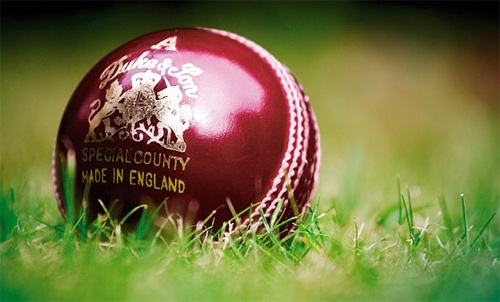April 22nd
Today we were directed to an essay by Urvi Kumbhat on the use of mangoes in diasporic literature. As she discusses in her essay, mangoes have become a sort of shorthand or symbol that writers use to invoke an entire culture, country, or way of life. This has the beauty of simplicity – but also the problems of simplicity, in that you really can’t sum up a culture in a single image or item, and you risk cliché if you try.
Our challenge was to then, to write a poem that invokes a specific object as a symbol of a particular time, era, or place.
I have no idea why this object was the first thing that sprang into my mind, but I decided to run with it in anyway – pun totally intended.

1976, that summer’s heat making light work of my shoddy whites.
Sweat beads slip from my crown, wiped from my brow,
They run the bails of my fingers, to where a rubicund sphere sits.
As a boy, it held no mystery, taught me no lessons,
It told no lies, held no surprise, a simple ball to my eyes.
And I, a player in its game, out in the field, making up the numbers.
That crimson globe quartered and sown, it spoke to me of course,
Of noble Englishmen, and some again, who tasted sour defeat.
Of being a sport on the village green, the pride of playing for your team.
In our green and pleasant land, the Duke still holds command,
Not for us the Kookaburra or SG.
We wrote the rules, gave ourselves the tools to suit our game plan.
Now as a man, I understand, why its lustre is no more,
That battered orb, my palm absorbed, a former grand rondure.
And if I speak of reasons, umpires signal treason, in this once tolerant isle.
Our seamers’ aim was English gain, no matter where the country or field,
Once with that ball, we conquered all, now our empire has been dismissed.
We govern no more from these tiny shores, our opponents are free at last.
No sound of leather on bat, cries of “howzat?” can mask committed crimes,
No wax should erase those red stains, left by tourists in their time.
Let the six binds of this twine, always remind of the scars we caused to be stitched.
Malay rubber inside, under tanned Scottish hide, five strings to tie and thatch,
To rivers that bleed, and waters that feed the Ganges, Nile, and Potomac.
No amount of spinning can cloud the sinning, or desire to win at all costs.
You wanted riches and fame, so up sticked the game, and raped every global wicket,
And now you rue the day, as you hear natives say, “just admit, that really wasn’t cricket.“
So, at the crease please don’t linger, Dickie Bird has raised his finger; this test you have lost.
Please do leave me your thoughts and comments, I appreciate them all and will reply.
Cricket always reminds me of my father, Graham, who played for Streatham United Dairies throughout every summer during the sixties, and we accompanied him to every weekend match, mostly sitting in the shade of the pavilion drinking warm Coca Cola and eating Smith’s crisps with a twist of salt. I love your poem, which makes me wistful and a bit tearful thinking of my dad in his whites, and the weight of the ball in my hand when I retrieved it from the long grass along the boundary. Sometimes I was allowed to help put up the scores.
LikeLiked by 1 person
Hi Kim, they sound like lovely memories, I hope those tears were warm and happy ones.
LikeLiked by 1 person
They were!
LikeLiked by 1 person
Ah! I loved that you managed to use metonymy to critique colonialism. I think that for those of us who are people of privilege, people implicated in colonialism, writing about places and times that are part of our own lived experience does often point that way. It feels risky to write about colonization from this angle, but it is certainly part of the reality and part of the story of how these things happened and keep happening.
I love how you literally look inside the ball to see where the materials come from. Brilliant move of picking apart objects and experiences not often picked apart from this angle.
LikeLiked by 1 person
Hi Alana, thank you very much indeed. I think you can see how much I enjoyed this one. It gave me the opportunity to develop a number of layers without being too obtuse about my points. I think we all need to be braver than brave today. The forces that shaped our inequality are very much back in play, we need to bowl these buggers out once and for all.
LikeLiked by 1 person